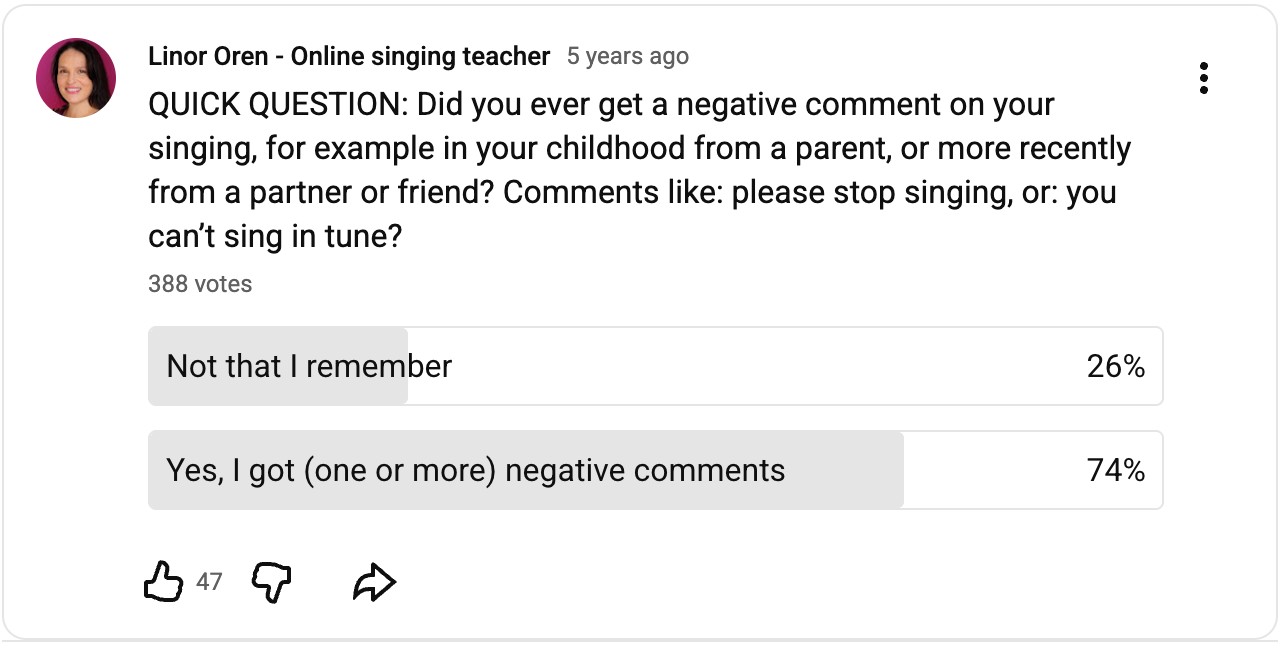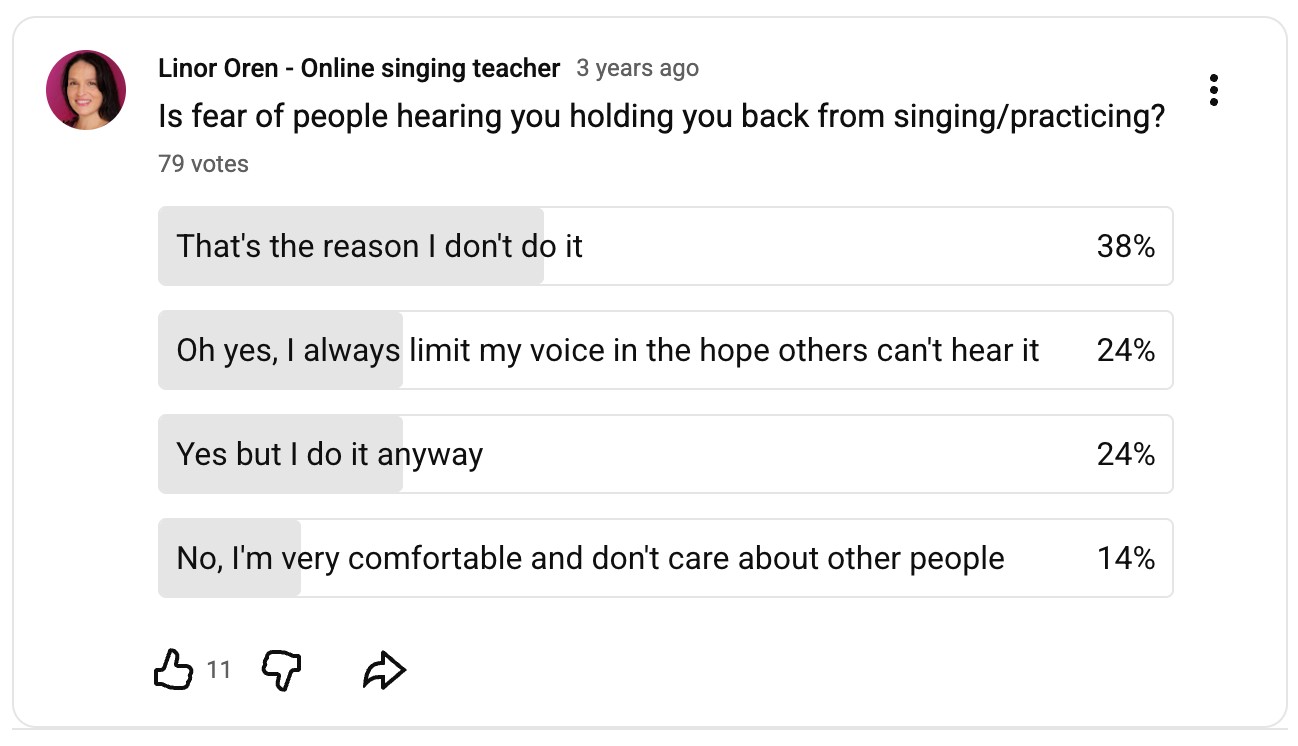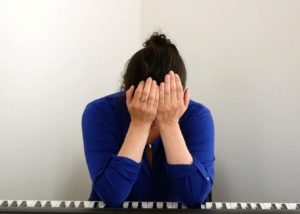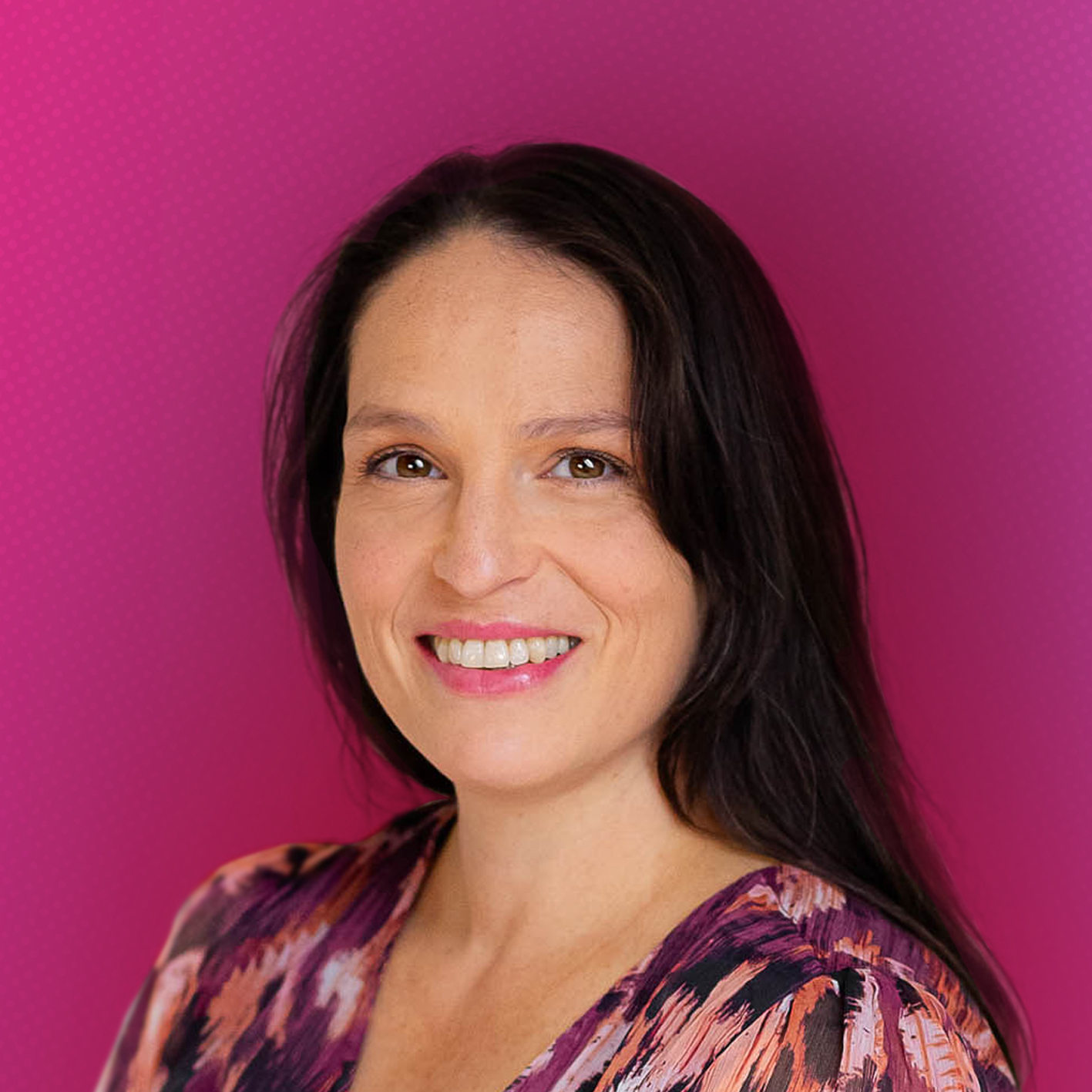Many beginners struggle with practicing singing at home. Relying on yourself? That's not easy. Singers are often simply unsure of how exactly to proceed. In my experience, they need a practice plan, and they need some support.
What if there was a way to make practice singing less of a chore and more of a fun, productive experience?
I will give you a practice plan of how to practice at home without feeling overwhelmed. A clear system is key to motivation. Knowing what to do in what order will give you peace of mind that you're doing the right thing - and results.
By the way, also check out my larger, step-by-step guide of learning how to sing. This practice advice is one of the steps in it.
How to practice singing at home (quick steps)
- Loosen body & posture
- 5–10 min gradual warm-up
- Drill one technique on 1–2 song phrases
- Assess and next scale up this technique
- Sing through for joy/performance,
- Stop if strain; resume later. Aim 4–6 days/week, 15–60 min, depending on level.
Note: this is a guide to practice singing with a song you already know, and developing your voice in general. I also have a guide for you on how to learn a song. Of course, practicing at home is embedded in a bigger picture of learning how to sing.
1. How often should you practice singing at home?
More (longer time) is not always better in the case of voice practice. Our vocal cords are like other muscles in some ways, meaning they need training over time. But they are not like other muscles in the sense that they are much more limited in their endurance, for most of us, then other muscles.
There is only so much you should sing in a day. If you practiced piano or violin your teacher would maybe tell you you need up to 8 hours of practice per day. Holy crap, if we did this to our vocal cords... I don’t want to think about it.
Having said that, different students at different levels can use different plans for their practice. I have heard the recommendation from teachers that 1 hour of singing per day is the way to go. I beg to differ. It MIGHT be the way to go for some. But not for all.
The question of how often, though, is a lot simpler in my opinion:
Practice should be regular, because we are dealing with muscle memory. We want to replace bad habits with good ones. But what does that entail exactly? Should you practice every single day?
Some would say yes. I say: at least 1 day off a week. Most athletes also follow that rule. You need to give your muscles at least a day off to restore. Every other day is also very good, your muscles will still remember and be able to take things to the next level.
No longer a little mouse...
Maybe you feel it's time to stop shushing your own voice and take your desire to sing seriously. My weekly 'Belting Mouse' mail shows you how. It gets you on track with stories and insights from my life as a singer and that of my students.

For 'little mice' who are tired of squeaking and want to start belting...
Conclusion
Anything between 4 and 6 times a week I would consider regular.
Provided that you are having a good period with no drastic mental issues which require taking things slow: the closer the frequency is to 6 times a week - the better progress you will have.
"Hundreds of studies have demonstrated that spaced practice, also known as distributed learning or spaced repetition, helps students learn better. Specifically, it helps them to retain information for longer periods of time compared to sessions during which learning is "massed", commonly known as cramming."
The University of Arizona
2. How long to practice singing?
And now, for what I consider the more critical question: How long should your practice session be? How long should you practice each day?
Beginners: how long to practice
If you are starting out, not only are your muscles not used to singing, they are also not familiar yet with singing RIGHT. Moreover, you might not be aware of whether you are in fact “doing it right”. So practice should be relatively short, to prevent you from reinforcing wrong technique. I usually recommend around 15 minutes of singing for beginners.
Later I will lay out the structure of your practice, which doesn’t only involve singing, so it is ok to dedicate 15 minutes to the singing itself, and additional time for the other activities.
Intermediate singers: how long to practice
If you already have some lessons under your belt, you are more able to tell if you are doing something harmful or making an effort with your voice. So you can make your session longer without risk. Say 30-40 minutes, depending on how your throat feels.
General rules for session length
Once you are in the session: pay attention. Mind your throat mostly, how it feels. Is it difficult to sing, are you making an effort? Mind it while you sing and also after you have finished an exercise or a phrase. If you feel an effort - use the technique you’ve learned to try and correct it. If it doesn’t work and you keep feeling the effort after a few times - stop. Do a different exercise, a different song. If that’s still no good - get back to it in a few hours, or another day.
Advanced singers: how long to practice
You can practice for an entire hour. I know some people are more than happy to sing longer than that. If you insist, and if you are sure your vocal instrument is doing alright - go ahead. But I actually wouldn’t recommend it. Even the best of us fall into the trap of overdoing it. I believe the regularity is more important than the duration of your practice session.
Data intermezzo: the psychology of why we (don't) practice singing
I have to address this, as it's so common. Singers experience internal hurdles that keep them from practicing at home.
I conducted two large-scale polls on my YouTube channel. The results reveal that for most people, the struggle isn't about lack of talent: it's about historical feedback and current environment.
Hurdle 1. The "Ghost" in the Practice Room: Childhood Feedback
I asked my YouTube community about the type of feedback they received regarding their voice while growing up. The results were interesting, to say the least:
- 74% of respondents (out of 388 respondents) reported receiving negative or discouraging feedback about their singing during their formative years.
- The impact: This means 3 out of 4 singers walking into their living room to practice are mentally battling a "ghost" from their past: a teacher, parent, or peer who once told them they weren't good enough.

Hurdle 2. The practical barrier: what stops you from practicing?
When we asked singers what their #1 obstacle to consistent home practice was, the answer wasn't "lack of time" or "too difficult exercises."
- 86% of singers (out of 79 votes) identified mental blockages of fear of being heard by others as a hurdle that holds them back from singing.

Why this matters for your progress
This data proves that the hurdles to start practicing are for a large part psychological. If you feel "stuck" practicing at home, you aren't failing at the technique; you are likely part of the 86% dealing with the mental weight and/or of the 74% who were discouraged as children.
The Practice Insight
To optimize your home practice, you must address the "mental volume" before the physical volume.
Tip from 'left-field': get over insecurity in front of an AI!
Sergey Kuhne, founder of Singing Carrots, has built an AI Vocal Coach, which gives you vocal exercises and analyses pitch and other characteristics. The irony is that the fact that people are singing in front of a computer, a bot, can releave them of 'stage fright'. Read more about the future of AI and voice coaching.
Case study: how to deal with your 'fear of the neighbors'
In my podcast episode "From Scared to ADDICTED," my student Emiliya speaks quite openly about how the thought of her neighbors used to keep her voice small. She admits that before our work together, she would only sing at home when she was sure no one was listening, because she was "always shy about it" and worried about "not bothering other people".
She explains that she used to prioritize other people’s comfort over her own musical enjoyment, essentially putting her passion on hold to avoid being a nuisance. However, her transformation involves moving past that fear.
By the end of our discussion, she describes herself as being "addicted" to making the very loud sounds she once feared her neighbors would judge!
3. What are the different parts of a singing practice?
And now, for what I consider the more critical question of how to practice singing: what exactly should the practice session be like? Of course, mostly people go about this wrong. We just go into our practice room and start the chaos: start singing, get dissatisfied with the sound, just give it another try, getting lost, trying multiple things at once... ad infinitum.

Me, when I used to practice wrong
I will go out on a limb and say - all this is not going to get you far very quickly. And by that I mean: that is a waste of your time. And it adds all sorts of blockages and obstacles to a task which is already not very easy - improving your singing.
Positive thinking and productivity go hand in hand. If you are anything like me, then a term like ‘positive thinking’ may sound a bit “new age” to you and raise an eyebrow. But it is in fact very practical.
For a more productive, hence more fun experience, here are some things to understand about how voice training works.

Advice for my 21-year-old me
If I could go back in time some 20 years and give myself advice - well, it would be a lot of advice - I have made many mistakes in my life, specifically when it came to my singing.
But I could have said one crucial thing: practice should not be a burden.
Practice is not a duty. As a 20-something-year-old, I would be a bit incredulous of that. So being given a formula which I can exercise every time I practiced - that would be a game changer. I would have seen the results for myself, and that would have motivated me to keep going. That’s what I am hoping to do for you.
About the author

I’m Linor Oren, founder of SingWell. I have an opera background and in the past I've performed on stage. I've taught hundreds of students how to find their authentic voice. What I’ve learned is that singing isn’t about being “born with it” — it’s about unlocking what’s already inside you with the right tools and guidance. My passion is helping singers at every level grow in confidence, technique, and joy, so they can sing with freedom and expression.
My singing practice formula in one file + video!
As a part of my online singing course you get the full system of practicing effectively. You also get a printable plan that guides you through your practice, and a vid to walk you through it all. Here's a peek.

"
“Practice should never feel like punishment. When you turn your singing routine into a clear, mindful system, it stops being a chore and becomes the most rewarding part of your day.”
How to practice singing: my formula for a productive, fun practice session
1. Start with a bodywork routine.
This is crucial! Get the body nice and loose, with a nice posture, before you start.
The routine may change with time, according to what your body needs to relax. An overall routine might be a short yoga/pilates/alexander session, or even a few rounds of the sun salutation (yoga).
2. Warm up.
Like any athlete begins their practice session with basic movements, so should we. You can use my warm-up exercises, or any other you like.
3. Practice on a song.
Do one or two phrases at a time, and focus on one technical element at a time. You can learn more about how to improve your technical elements and how to multitask them in my online proram the Make Singing Click Club, but we’ll also go into some more details later on here.
4. Sing through at least for a few minutes.
Also crucial! Remember I said don’t think only of technique? Just sing. Sing for the joy, think of the lyrics, of the music, do some performance exercises, and come what may. That will remind you why you are doing this in the first place.
Whatever you do, please don’t skip step 1 and 4. These are the best way to ensure minimum anxiety and mental problems around your practice.
4. Coaching yourself in singing practice
How often have you heard people say “You simply have to practice. Practice makes perfect. Practice, practice, practice” ? It will apparently get you to Carnegie Hall.
Yeah, yeah, but how?! What? Practice should not be a random thing, when you throw darts blindfolded, sometimes hitting board. I hope not…
Drill it into your system
So to show you exactly how you get better at something, What I mentioned earlier is what I call “drill it into your system”.
- 1Choose one technical thing you have learned from your teacher/Youtube tutorial/whatever. For example: relax your jaw.
- 2Sing an exercise, or one/two phrases from a song, without pausing.
- 3Rate your performance regarding this one technical thing you chose. That thing only. Give it a number from 1 to 10. I recommend under 5! I'l explain why below.
- 4Decide on a higher number - maybe double your last result. For example: if you gave yourself a 3 - go for a 6! That's your goal, and you will probably hit somewhere on the way there on the next try. That’s how you get better.
Be harsh on yourself - only at the ranking stage! Give yourself a lower score rather than a higher one.
When you think about it, if you say “that was an 8, or a 9” what you’re saying is: “I can’t do much better than that”. And that’s actually being harsh and negative. If you give yourself a 5, that makes the potential 10 much more exciting. I can’t wait to hear that 10 🙂
Follow these steps in your practice and report back: is it helpful for you? Let me know!
5. Get regular feedback from your vocal coach
Going to a singing lesson once every two or three weeks won't give you the consistency you need. In my experience, many students lack the motivation to practice regularly. It's nothing to be ashamed of, it's just human nature. We like to work and to learn in groups.
So in between lessons, arrange with your singing teacher that you stay in touch. This can of course simply be online. Send him or her small video fragments of you doing a phrase of a song or a vocal exercise.
1. Motivation and encouragement
Learning to sing can be a long journey, and it's easy to get discouraged. Your vocal coach provides not just technical feedback but also emotional support, helping you stay inspired even when progress feels slow. Personally, I give my students a little nudge now and then, simply on Whatsapp. 'What are you practicing today?'
2. Preventing bad habits and bad technique
Without guidance, a voice student can start second guessing if they apply the technique correctly. Regular check-ins with a coach help prevent this by correcting mistakes before they become ingrained. The right technique is essential for long-term vocal health.
3 Faster improvement
A coach can pinpoint areas for improvement that a student might not even notice, accelerating progress. Instead of spending weeks trying to figure things out alone, students can make efficient, targeted adjustments with the feedback of their coach. This leads to better results in less time.
In short, while self-practice is important, staying connected with a vocal coach ensures that a singer stays on the right track, remains motivated, and reaches their full potential faster and more safely.
No longer a little mouse...
Maybe you feel it's time to stop shushing your own voice and take your desire to sing serious. My weekly 'Belting Mouse' mail shows you how. It gets you on track with stories and insights from my life as a singer and that of my students.

For 'little mice' who are tired of squeaking and want to start belting...
Conclusion
Let's see if I can make it concise for you:
- Practice singing regularly, 4-6 times a week. Regularity is more important than length.
- Use the 4-part practice structure and don't forget starting with bodywork and ending with singing through.
- Focus on one vocal technique element - until you get it!
- If possible, get online feedback from your teacher between lessons.
This is it in a nutshell. If you implement this method - you will nail whatever a teacher or YT throws at you, and you will make fantastic, satisfying progress with your voice.
Frequently Asked Questions
How often should I practice singing at home?
Aim for 4 to 6 days a week. Consistency matters more than duration. Taking at least one rest day helps your vocal cords recover, just like athletes give their muscles time to heal. Regular, spaced practice builds muscle memory and steady progress.
How long should a singing practice session last?
Beginners can start with about 15 minutes of focused singing and gradually extend to 30–60 minutes as technique and endurance improve. Always listen to your body. If your throat feels strained, stop and rest—quality matters more than time spent.
What should a good home practice session include?
A balanced session has four parts:
- Bodywork to release tension and improve posture
- Vocal warm-up to prepare the voice
- Focused technical work on one or two song phrases
- Singing through for joy and musical expression
Following this structure helps you progress safely and keeps your practice enjoyable and productive.
